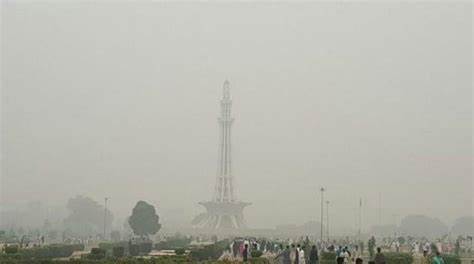Islamabad, Nov 29: Recent reports reveal that around 70% of Pakistan’s population is suffering from health problems due to severe smog. Common symptoms include cough, flu, and breathing difficulties. In Punjab, the situation became so dire last month that it was declared a “calamity.” The region’s air quality frequently exceeds dangerous levels, surpassing an Air Quality Index (AQI) of 1,000, well beyond the hazardous threshold of 300.
The thick smog has led to a surge in respiratory diseases. In just one month, nearly two million people in Punjab visited medical facilities for breathing-related problems. The hardest-hit cities are Lahore and Rawalpindi, where the smog continues to cause severe health issues. A recent Ipsos survey conducted from November 18-22 found that 79% of people across Pakistan had experienced smog in the past month. In Lahore, this figure reached 100%, with 68% of respondents reporting health issues tied to the smog. Urban areas were more affected than rural ones, with over a third of people noting disruptions in daily activities due to the smog.
The survey indicated that most Pakistanis attribute the smog to vehicular emissions (70%), followed by industrial smoke (63%) and waste burning (37%). Other contributing factors like brick kilns and crop burning were mentioned but to a lesser extent. Interestingly, 20% of respondents attributed the smog to the “wrath of God.”
When asked about barriers to addressing the issue, 44% pointed to a lack of public cooperation, while 37% said law enforcement was insufficient. Despite these challenges, most Pakistanis (around 80%) believe they should play a role in reducing smog. Many are willing to switch to walking, use public transport, or ride bicycles. A smaller percentage, 10%, were open to using new or hybrid electric vehicles.
Among vehicle owners, 90% expressed willingness to repair their vehicles and obtain government certification to help reduce pollution. However, satisfaction with provincial government efforts was lower among more educated individuals, raising concerns about the effectiveness of current strategies to combat the smog crisis.
